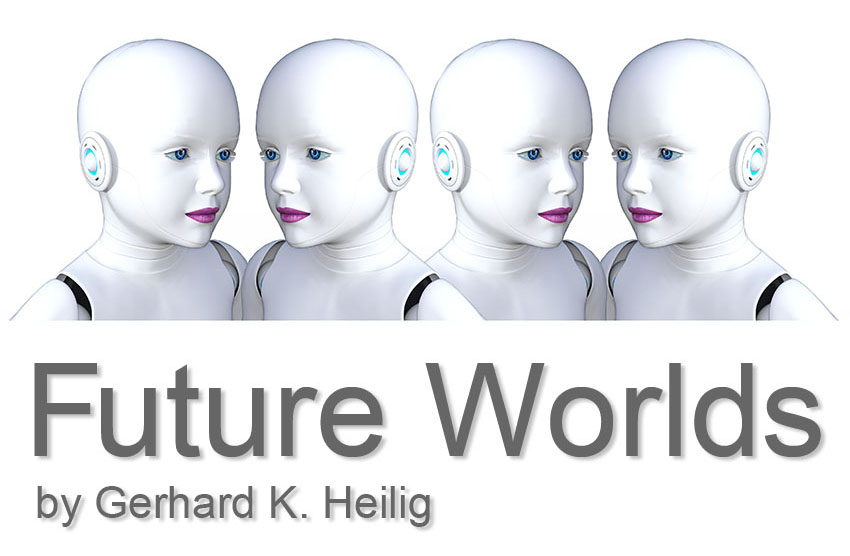



Of course, the question stated above, may be asking about something entirely different: will computers ever have the
flexibility, creativity and self-consciousness of the human brain to deal with all kinds of un-anticipated problems. Will computers be able to
intentionally venture into the “unknown”?
1. So far, all computer algorithms have dealt with problems that were very well understood beforehand. Implementing this knowledge into algorithms
has allowed computers to “solve” such problems with unprecedented speed, accuracy and persistency.
2. Only recently, we have seen certain AI algorithms which appear to produce “emergent” knowledge. This is knowledge that was not known beforehand,
but was only produced by the algorithm. In fact, the most advanced “neural networks” can produce results in ways that the engineers who have
implemented them can not anticipate or understand how they produce their results. This has led some researchers to the assumption we
might approach a so-called computer “singularity” – a tipping point when computers surpass human intelligence (Kurzweil, 2005). Kurzweil predicted
this "singularity" for the year 2045.
One the one hand it seems, that neural networks are incredibly good in picking up patterns in very large amounts of data. On the other hand,
this is essentially quite similar to a factor analysis in classical statistics – which can also unhide invisible dimensions in large amounts
of (more or less) correlated statistical data.
What the algorithm does is just to fine-tune itself by learning from previously existing solutions or structures.
Such structures may be “images of cats” or typical sequences of draws in chess. But whatever it is, these AI systems need something or someone
to learn from. They are incredibly good in learning and then applying this learned knowledge with vast speed and accuracy.
But, as far as I can see, they are not creating entirely new knowledge or insights. They are just incredibly good in extracting patterns with
high probability for solving the problem. Since they can do it much faster and better than humans, it appears that they are better than
human problem solvers. Essentially, they are just faster and can simultaneously process more possibilities.
The critical question is: Will computers / algorithms ever surpass this (already impressive) learning ability and become creative thinkers?
I don’t know, but I don’t think so, because they would need a human universe of sensors, as well as hands, bodies and legs to explore the world
around them. Intelligence, is not just abstract reasoning (which could be programmed), but emerges from world experience. Computers would need
human-like interactions and social relationships; they would need worldviews, ideologies, lifestyles – in other words – the totality of human
world experience. Perhaps, in combination with robots, computers might eventually develop real creative thinking – but I doubt this will be
within the next 1000 years (Warning! This could be one of those pathetic miss-predictions, I have highlighted above).
In conclusion, I believe Computers can already execute particular elements of human intelligence, such as hidden pattern recognition, much
better and faster than humans. In this sense, they have already surpassed human intelligence.
However, when it comes to the flexibility of intelligent solutions in new and previously unknown problem environments, humans are still much
better than computers.
And there is also the problem of consciousness. Will computers be ever aware of themselves? Is consciousness related to intelligence?
Will Androids dream of electric sheep?
Frankly, I don’t know – but my gut-feeling is computers will never achieve the level of intentional, conscious, creative problem solving of
the human brain.
While the question of computer intelligence is fascinating it seems to me that there is an even more important question: How will human societies change as a consequence of smarter and smarter computers? Let’s distinguish three cases:
1. If we assume that computers will surpass human problem solving capacity in many dimensions, but will always lack the specific creative potential of the human brain, societies will mostly benefit from computers (and robots). In my own lifetime I have moved from a “slide rule” calculator and the logarithmic table to Matlab on my PC. While I understood the primitive tools and tables for doing calculations reasonably well, I have no clue of most of the advanced mathematical methods available in Matlab. Yet, the software is just an incredibly powerful tool. I suspect, that in the far future people will still see even far more advanced computers and robots as “tools” that are just extremely useful for particular tasks.
2. However, if we assume that computers will eventually develop some kind of consciousness and general intelligence surpassing that of average humans, everything will be off the table: We might see entirely new types of societies. I suspect that trans-human intelligence would only be possible in combination with very advanced humanoid robots. Therefore we might have a society of androids evolving next to a human society. These super-smart androids might eventually “look down” onto us stupid humans – in much the same way as we have looked down on Orangutans or Chimpanzees. These androids might actually enslave us and present us in “human zoos” or circuses. But they might also help us and pamper us in much the same way as human adults treat their children or infirm parents. We cannot predict what kind of ethics self-conscious androids might have.
3. And there is actually a third possibility: Humans and very advanced computers might merge. We might incorporate advanced bio-computers in our brains which will run all kinds of AI algorithms to help us with complex problem solving. We might evolve into human-computer hybrids. Human consciousness would still dominate – but the new, specialized bio-computers in our brain would give us capabilities to calculate, think and process sensory inputs far beyond what we have today. We might become super-humans.